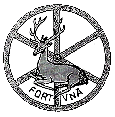|
Little is known about John Gower’s formal education. Many of these
sites focus on descriptions of school life in the 14th Century. Given
Gower's social standing, and the possibility that he may have worked as
a lawyer, it seems likely that he would have received a college education.
University
of Cambridge: The Medieval University
The University of Cambridge’s site offers a very concise (yet more
in-depth than Oxford’s) look at life in a medieval university. This
page covers the subjects taught at Cambridge, common pedagogical methods,
the rise of graduation ceremonies and formal degrees, and the beginning
of administrative positions and statutes.
The
Physical Setting of the University
Also from the University of Cambridge’s site, this page focuses
on the school’s physical growth from being housed on religious
grounds and in private homes to having its own permanent setting. The
first three paragraphs cover the rise of Cambridge through the 14th
century. This page is less useful for understanding scholarly life during
this time, but it does offer a frame of reference for the origin and
growth of university campuses.
University
of Oxford: A Brief History of the University
The University of Oxford summarizes its more than 900 years of history,
highlighting the most notable events at Oxford throughout each century.
The fourth and fifth paragraphs relate specifically to events in the fourteenth
century. Although not as comprehensive as Cambridge’s site, Oxford
offers a good starting point for understanding life at this university
during Gower’s time.
A Medieval Education
and Its Implications
Chapter one in J. Stephen Russell's Chaucer
and the Trivium: The Mindsong of the Canterbury Tales. Russell (Associate
Professor of English at Hofstra University) examines the pedagogy of grammar,
logic, philosophy, and rhetoric in medieval schools. He considers how
these subjects influenced students during this time and how their resulting
perspectives differed from modern people. This well-written, 48-page chapter
goes into great detail about the medieval educational experience. For
those with a more cursory interest, read the Grammar section from the
middle of page 9 through the first paragraph on page 12.
Education
in Britain: The Middle Ages
These two pages, created by the Department of English at Umea University
in Sweden, offer a brief description of the life of students in elementary
and grammar schools during the Middle Ages. The second
page briefly explores the education of aristocrats and women as well
as the role of punishment in the medieval classroom.
|


